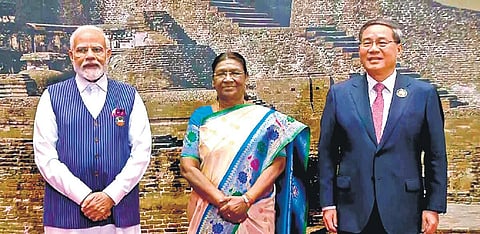

DUBAI: As many as 116 countries signed the Global Renewables and Energy Efficiency Pledge on Saturday, agreeing to triple worldwide installed renewable energy generation capacity to at least 11,000 gigawatts and to double the global average annual rate of energy efficiency improvements to more than 4% by 2030.
This is part of the Global Decarbonisation Accelerator (GDA), a major initiative launched by the COP28 Presidency at the World Climate Action Summit to speed up the energy transition.
While India has already committed to tripling the renewable energy target as part of G20, which was again reiterated by Prime Minister Narendra Modi here on Friday, COP28 Presidency sources say India and China, major emitters, have not signed the Global Renewables and Energy Efficiency Pledge so far.
On why India didn’t sign the pledge, Aarti Khosla, Director, Climate Trends, says, “There is an oblique sense that the tripling of RE must necessarily go together with phasing out of coal. India has defended its stance on coal especially as it has come to this COP where other large emitters like the US are still holding on to their gas expansion plans and EU despite the good looks on climate finance is still keeping room for gas. India doesn’t feel these countries have the moral leverage to ask it to wind down on coal.”
Vibhuti Garg, Director, of South Asia with the Institute for Energy Economics and Financial Analysis, said: “For India to meet its renewable energy goals, it would need triple the investments as well. India so far is managing its renewable energy growth story on its own but for tripling of capacity, India like many other countries in the Global South will need additional funding support.”
Zero Methane
50 firms, which represent over 40% of global oil production signed the Oil and Gas Decarbonization Charter, committing to zero methane emission and ending flaring by 2030